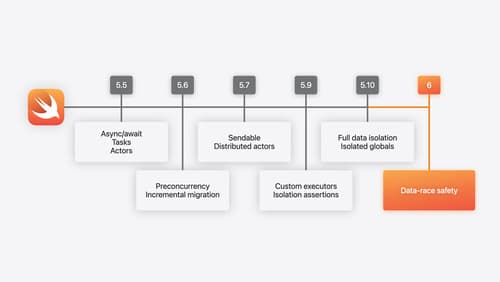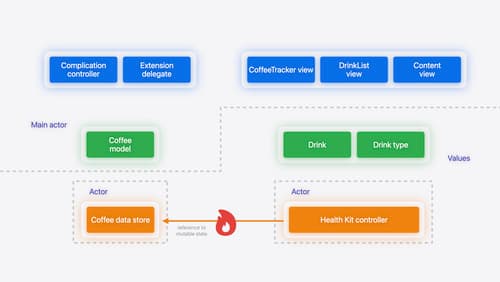swift6
Asked on 2024-09-09
1 search
Swift 6 introduces several significant updates and improvements to the Swift programming language, focusing on enhancing safety, performance, and developer experience. One of the key features of Swift 6 is the new language mode that provides compile-time data race safety, which helps developers write correct concurrent programs by diagnosing data races at compile time. This feature is opt-in, allowing developers to adopt it module by module, even if their dependencies have not yet migrated to Swift 6.
Additionally, Swift 6 includes improvements to concurrency, generics, and introduces a new embedded Swift subset for targeting highly constrained environments like operating system kernels and microcontrollers. The language also supports non-copyable types, enhancing the safety and efficiency of Swift code.
For developers looking to migrate their apps to Swift 6, there are resources and guides available to help with the transition, including a migration guide on swift.org. The migration can be done incrementally, and the new Swift 6 language mode can be enabled when developers are ready to tackle data races in their code.
For more detailed information on Swift 6, you can refer to the sessions from WWDC 2024, such as Platforms State of the Union and What’s new in Swift.

Platforms State of the Union
Discover the newest advancements on Apple platforms.

What’s new in Swift
Join us for an update on Swift. We’ll briefly go through a history of Swift over the past decade, and show you how the community has grown through workgroups, expanded the package ecosystem, and increased platform support. We’ll introduce you to a new language mode that achieves data-race safety by default, and a language subset that lets you run Swift on highly constrained systems. We’ll also explore some language updates including noncopyable types, typed throws, and improved C++ interoperability.

Migrate your app to Swift 6
Experience Swift 6 migration in action as we update an existing sample app. Learn how to migrate incrementally, module by module, and how the compiler helps you identify code that’s at risk of data races. Discover different techniques for ensuring clear isolation boundaries and eliminating concurrent access to shared mutable state.
